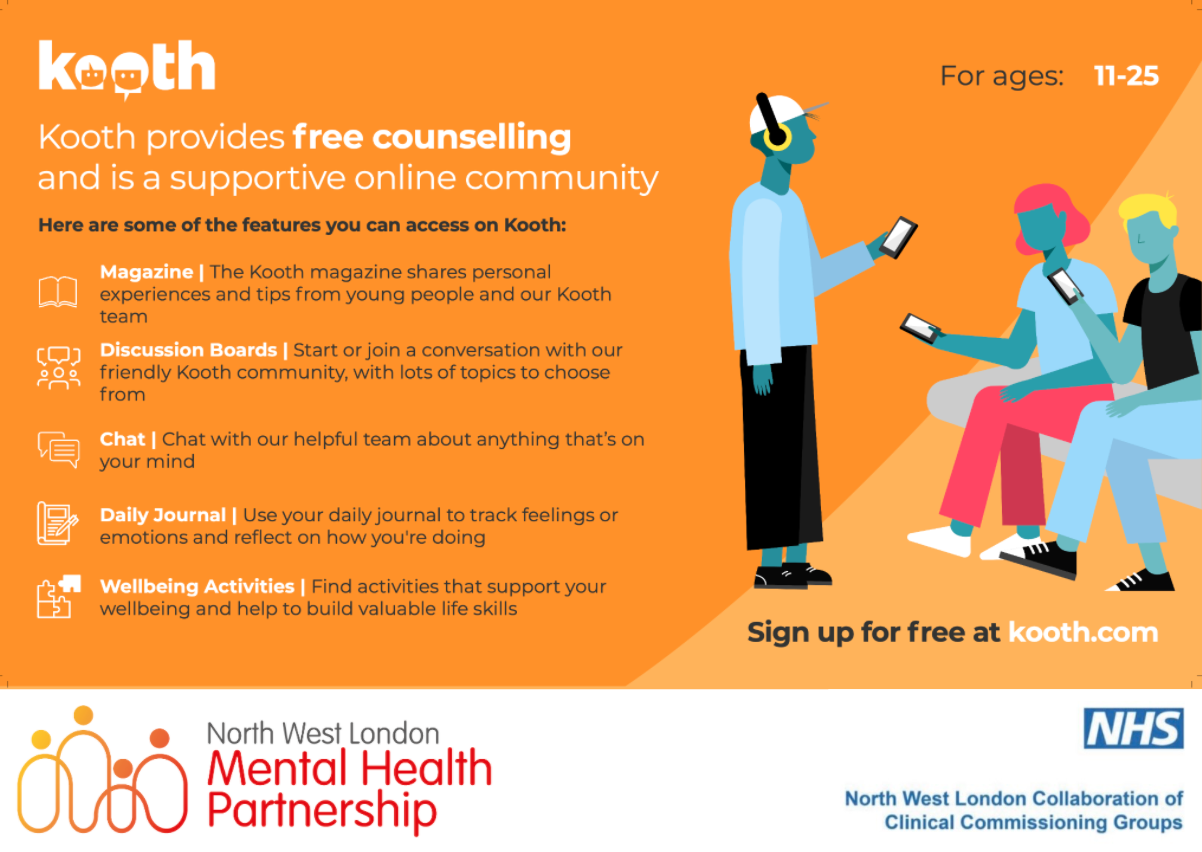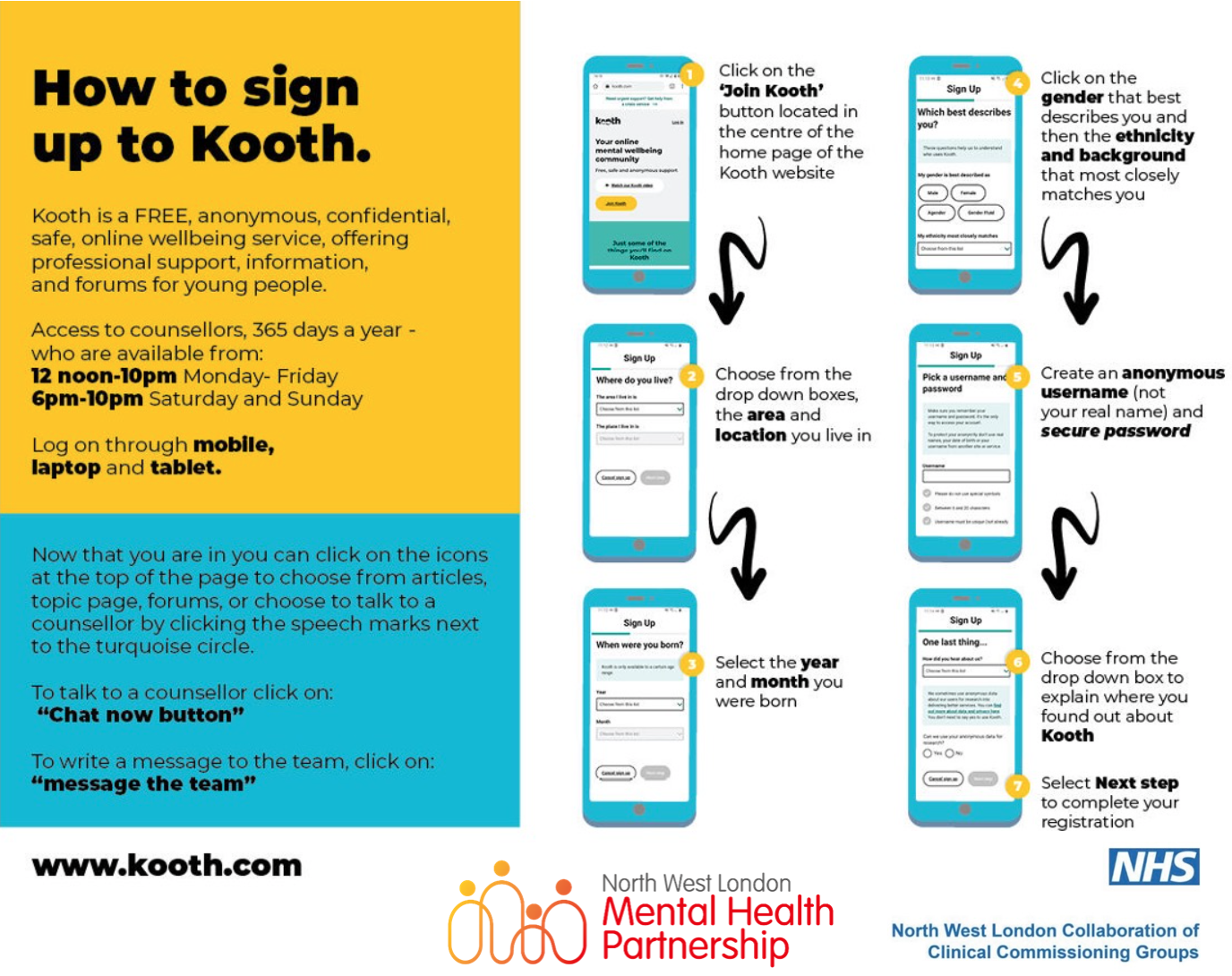Well-Being Hub

The School plays an increasingly important role in supporting students to make healthy lifestyle choices and to understand, not only the benefits of health and well-being, but also the links between wellbeing and thriving both academically and socially. The Well-being Hub has been established to support the good mental health, resilience and well-being of our students and young people and to provide a resource where our students can speak freely about the pressures they face, without fear of stigma or discrimination. It also provides targeted support for a range of concerns including body-image, mental health, emotional wellbeing, anger management, self-esteem and anxiety issues. In addition, group work is delivered to cover a wide range of topics which can affect wellbeing, to supplement 1:1 support for students who require long-term support.
Within the School structure, a strong support network has been created. This includes each child’s Tutor, Learning Co-ordinator and Heston’s in-house Well-being Hub where the School Counsellor [Wiktoria Dubash], the Learning Mentor [Sam Saib] and the Designated Safeguarding Lead [Julie Macsorley] are based.
The importance of good mental health, and strategies to promote this, are taught across all year groups, through PSHE, the Tutorial Programme, Super Learning Days and Assemblies. From Year 7, skills for good mental health are covered, including a focus on the practice of mindfulness. In addition, annually, Student Mentors from Year 12 receive training to enable them to support younger members of our community through some of the issues they may have faced themselves.
We encourage students to explore the resources below and to inform their Learning Coordinators if they require additional support.
Below are organisations which provide external support for students and families.
Click on the tiles below to open the link to the organisation.
WHAT IS KOOTH?
Kooth is a free, safe and anonymous online wellbeing service for children and young people. Young people using the site are able to access a range of support services including one-to-one counselling sessions, discussing issues with their peers through online discussion boards, reading and contributing to self-help content and recording their feelings via journals and goal trackers. The online nature of Kooth means that young people can access help in a way that is most suitable for them, at a time that is convenient for them, 365 days of the year.


|
TOP TIPS FOR WELL-BEING 1. Stay connected with people We all need to feel connected, so keep in touch – whether it is with people you normally saw often or reconnecting with old friends. There are many different ways to stay in touch with friends and family when you cannot meet in person. Think about scheduling time each week to speak over the phone or make time for regular video calls. Social media is another good way to stay connected, but make sure you take breaks from your digital devices and switch off before bed.
It is normal to feel worried, scared or helpless about the current situation. Remember: it is good to share your concerns with others you trust – and doing so may help them too. If you cannot speak to someone who you know, or if doing so has not helped, there are helplines you could try. Go to the School website: About Us | Well-being Hub – here you will find information and links to different organisations where you can find support. 3. Support and help others
Helping someone else can benefit you as well as them, so try to be a little more understanding of other people's concerns, worries or behaviours at this time. Try to think of things you can do to help those around you. Is there a friend or family member nearby you could meet outdoors? If you cannot meet up, you could phone or message them.
|
|||||


 2. Talk about your worries
2. Talk about your worries





 Dehydration will affect how we feel and think very quickly. Drinking water regularly throughout the day is an easy, effective step to take to be as mentally healthy as possible.
Dehydration will affect how we feel and think very quickly. Drinking water regularly throughout the day is an easy, effective step to take to be as mentally healthy as possible.